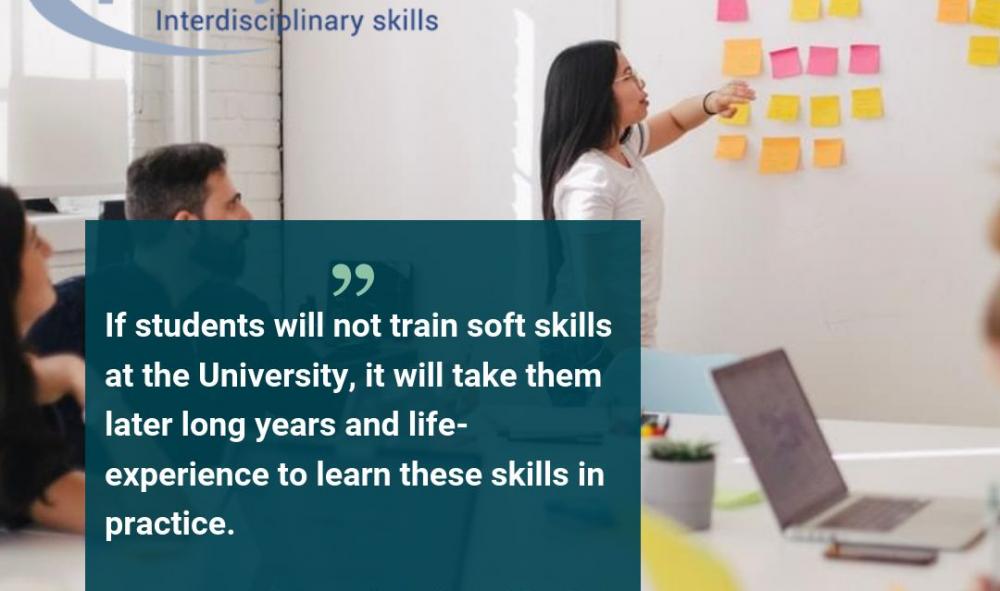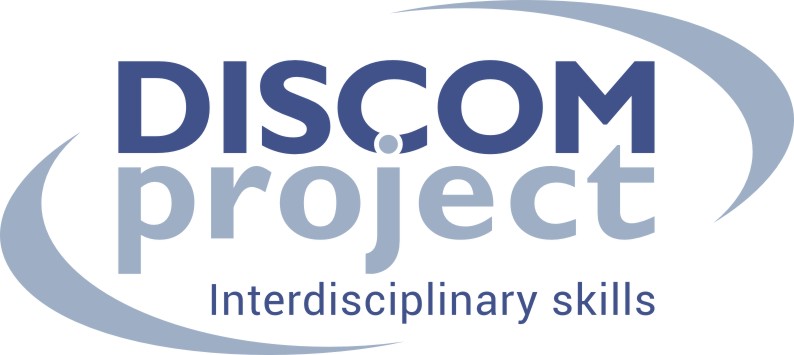NEWS
Teachers from 9 countries agree – students must improve their soft skills

Almost everyone has heard the term “soft skills”. But do we really know what this means? Do we learn soft skills already in the school? Do universities include in study programmes sufficient number of courses which aim to train soft skills of the students? And are the lecturers ready to use different methods and techniques in their lessons in order to develop soft skills of students? Such skills as setting the goals, time management, working in the team, communication, conflict resolution are very important for nowadays professional, but are those skills trained sufficiently?
Those were questions which in spring 2020 six partner universities of ERASMUS+ DISCOM project asked to the students and teachers.
340 students from 6 countries and 76 teachers from 9 different countries took part in the survey. Most of the students – 70% – confirmed that they have heard about “soft skills”, but 54% of them pointed out that in their study programmes they do not have courses which tackle to develop soft skills. More than a half of students think that universities are not paying sufficient attention to the development of “soft skills” of their students.
We gathered also very valuable feedback from the teachers, who shared their experience about soft skills and their experience and teaching practises.
We asked to the teachers if they agree with the statement, that nowadays in order to succeed at work and personal life "soft skills" of students have the same importance as professional skills. 89% of the teachers agreed with the statement and assured that soft skills in nowadays world is key to success. Almost the same number of teachers (86%) pointed out that their universities should pay more attention to the development of soft skills of the students.
43% of the teachers who participated in the survey stressed that students absolutely lack or have weak conflict diagnostics and conflict management skills. 35% of the teachers think that multicultural communication skills of the students are weak and should be trained more. Most of the teachers also agreed that such skills as setting professional and academic goals, time management skills, efficient planning and ability to cooperate in team are average or should be improved.
Teachers emphasized in the survey that lack of those skills can lead to difficulties to find job, make good carrier or even to failure in private or professional life. Young professionals will not be able to solve complex problems, their performance results will be average or even below the standard.
It can bring to closed systems, fear, narrow-mindedness. If the students don’t learn soft skills in universities, it can take them long years and life-experience to learn these skills in practice.
So what would teachers suggest? What should be done better in universities? The best and the most obvious solution is to include such courses in the study programme. But what to do if it is not possible, as the curriculum is limited? Many study programmes already now have very busy schedule and adding additional courses is not an option. Most of the teachers suggest to revise and update already existing courses and teaching techniques. It is important to include more practical studies – group works, practical exercises, role-plays, discussions, field work, web-quests, project work, simulations, debates and similar methods. Additionally, voluntary work as a part of the study program or in study programme recognised volunteering time during study period can teach some of the soft skills. There are universities in Europe which are already including voluntary work as a part of the study process. Also support, advice or caching from the side of university can be very helpful. Those universities who have career centres or some structures providing guidance, professional support or caching are in better situation and can track and provide support in development of soft skills much better.
It is clear that in the future soft skills will have the same importance as professional skills. Right now the Z generation starts to study in universities – young people with high requirements and expectations, those who already request from the universities to provide education which suite their needs and the needs of the labour market. And consequently the universities will have to start to think more about training of the soft skills and using more practical and interactive teaching methods. This is our future!
This survey was made in frame of ERASMUS+ Strategic partnership project (project number: 2019-1-LV01-KA203-060423). During the project 6 partner Universities will create different study and teaching materials aiming to develop soft skills of students. More information can be found on http://skills.turiba.lv


